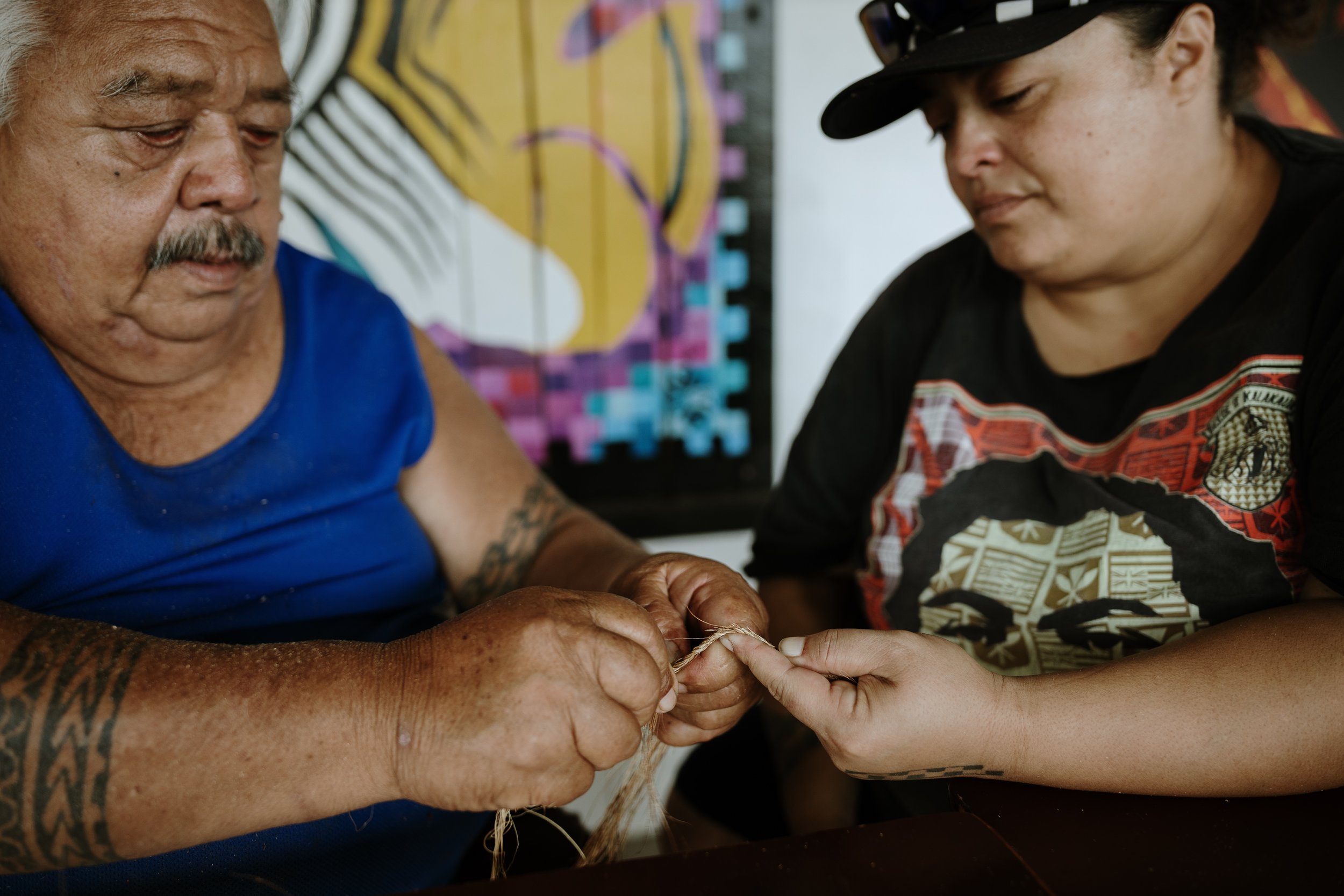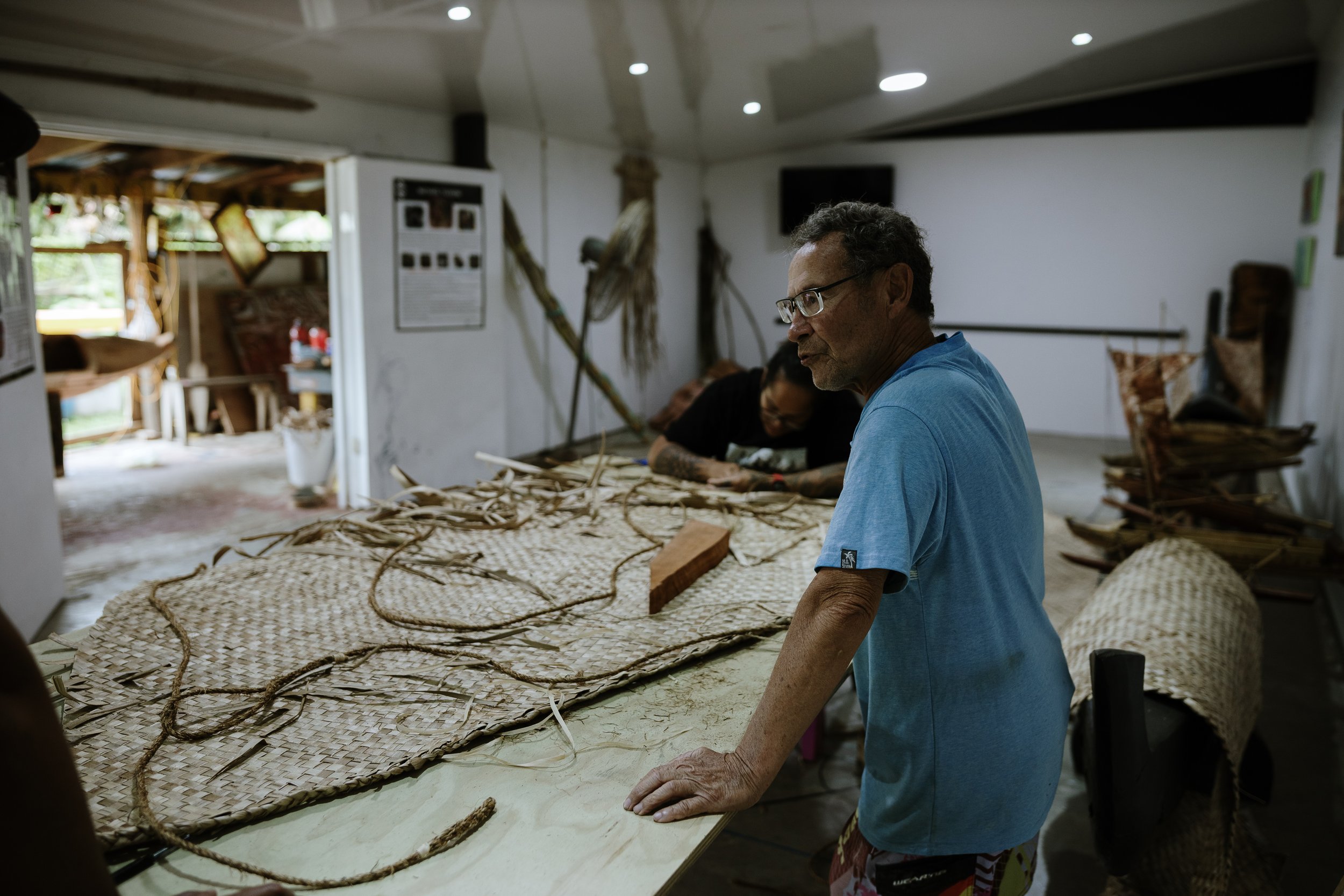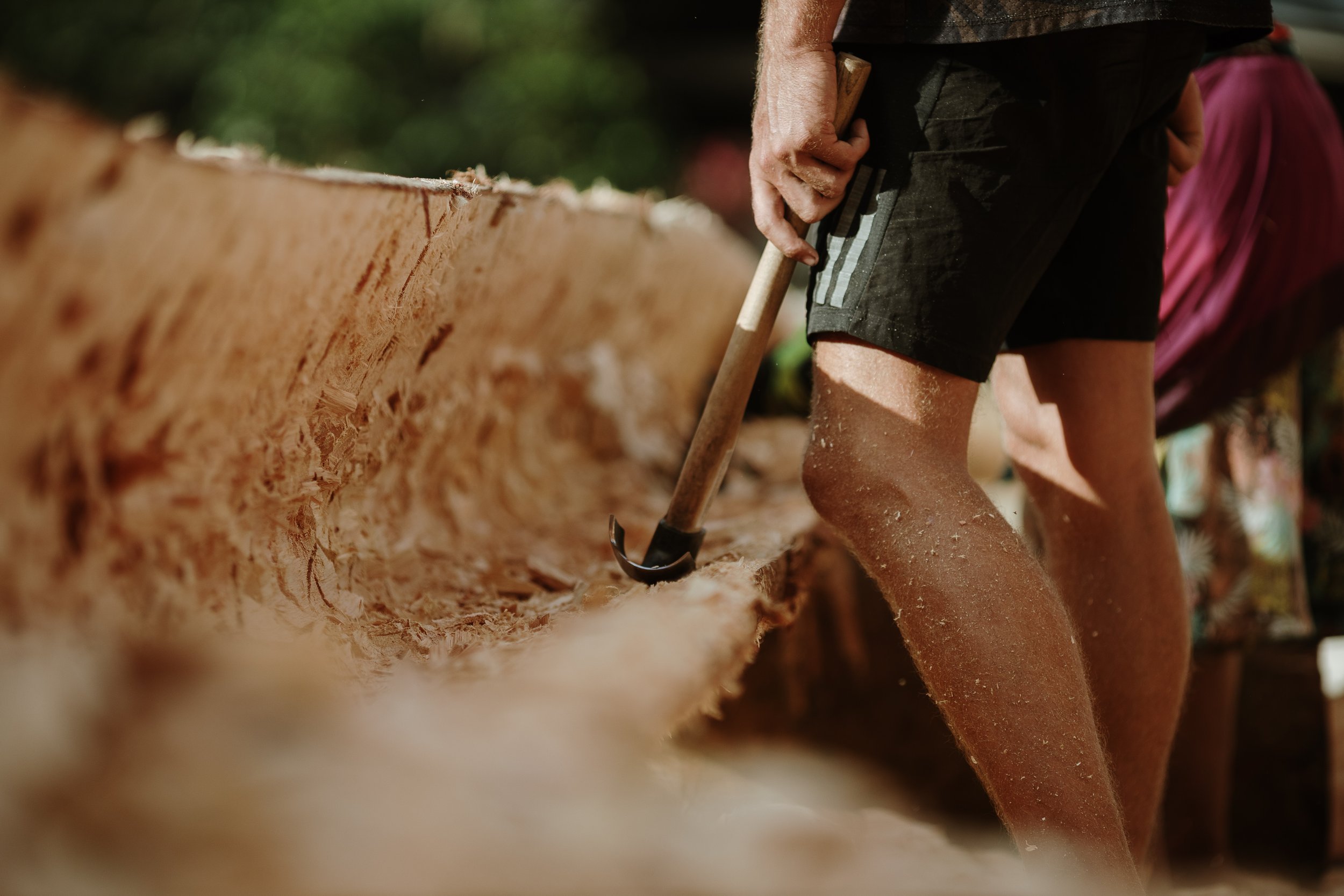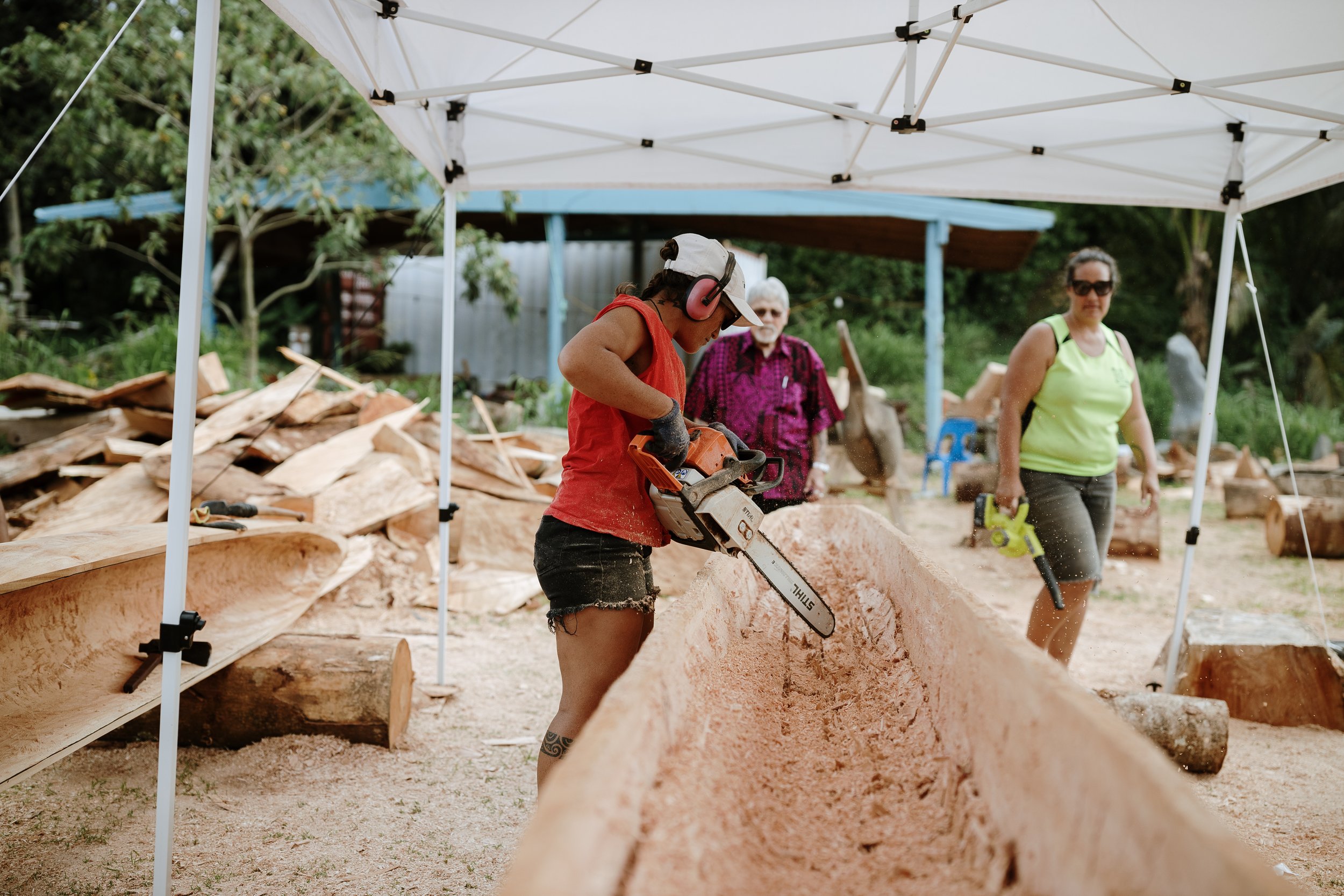








INTERVIEW WITH ALEX MOANA KING BY DANIELLE KHAN DA SILVA
IMAGES BY ALEX MOANA KING
“My experience with this project has not only been about documenting it, but immersing myself in the learning process, being one with the knowledge and practice, spending quality time grounding myself in a place that has felt safe and at home, and learning an ancestral skill. I got to learn how to build a vaka (canoe).
There has been no feeling quite like it. I have at many times cried and become emotional when my feet touch the soil upon which Papa Mike has created for us all. Here we did not only build these canoes with our hands, but we became a big family, with some of us traveling from other islands in New Zealand, Hawaii and Tahiti. This project brought us together as a community.
For three months we each showed up to Michael’s Gallery Tavioni workshop, and some of us from early morning to late nights almost seven days a week. We shaped the vaka using chainsaws and hand tools like the Adze to dig out the inner part and core of the canoe. The work was tedious at times, lots of sweat, physical strength required and most of all, mana. Mana was the spiritual and soul power that most of us felt as we were building and creating these vaka. For the women especially, we felt the most emotional and spiritual attachment to the work that we were doing. When it came to my first time of carving traditional designs and motifs onto the side of the vaka, I felt an overwhelming sense of calm inside me. I felt like I belonged somewhere. This was truly who our people were once upon a time, and I felt it. I got to work alongside some very special people including my own sister who is also an artist, and some of our good friends.
One of the key components that Michael wished to amplify is the women that have worked with him on this project and in his time of being an artist. His wife Awhitia is the prime example of his belief in women and how powerfully skilled and committed they are as working artists. He says they show up, they show more interest in learning what he has to teach, and they are usually ‘much better’ at the job.
He talks about how ‘Tapu’ (taboo/sacred) it has been for a long time in some cultures, for women to work as carvers or using these practices and calls it chauvinism. He likes being what he calls ‘controversial’ and doing the opposite of what others would expect.
He said to me in a soft and innocent tone, ‘I think I’m an activist?’ I smiled and agreed and said I was, too. I tend to go against the grain not because I can, but because it’s so important to be a voice in the community for those who feel like they are not allowed to be different, or return to who we were originally as an Indigenous community before western influence changed our way of living.
Sometimes during the vaka project he would sneak up to my side and say quickly, ‘this is what we want to get a photo of.’ And it would be one of our young ladies on the tools. He just loves to see the full potential of our people, and encourages this the most.
Michael and Awhitia have traveled to different countries around the world in their earlier years together attending vaka building festivals in Hawaii, and winning almost every competition for being the quickest to build these canoes. Michael also created the Voyaging Society in the Cook Islands, bringing back revival to traditional navigation, sailing and vaka racing. He also shares and has a very knowledgeable background in agriculture. His arts and his books speak to us as a community, telling stories of our Polynesian traditional voyagers and navigators using the stars, and our planters and growers through our valleys and wetlands.
All this knowledge is being slowly laid out onto paper and he wishes to publish his books and extend his gallery into a traditional vananga (school) for our future generations. This is the purpose of documenting his life currently to show how important building this space would be for our people, for our children and our women, and a place for our men to pass on or learn new skills. This community would benefit widely, carrying on the practical skills, as Michael says if anything were to happen one day and we run out of the luxuries of life such as gas/petrol that we use in our modernised vehicles and boats, we will always have our canoes to feed our families.”
Alex has launched a campaign to help master carver, artist, storyteller and Maōri Elder Mike Tavioni (“Papa Mike”) with his dream of building a “vananga” (place of learning). At his Gallery Tavioni and Vananga, he will teach the future generations traditional practices and skillsets in Rarotonga, Cook Islands, so they can live sustainably and protect their culture, environment and oceans. Help support the creation of this vananga.











